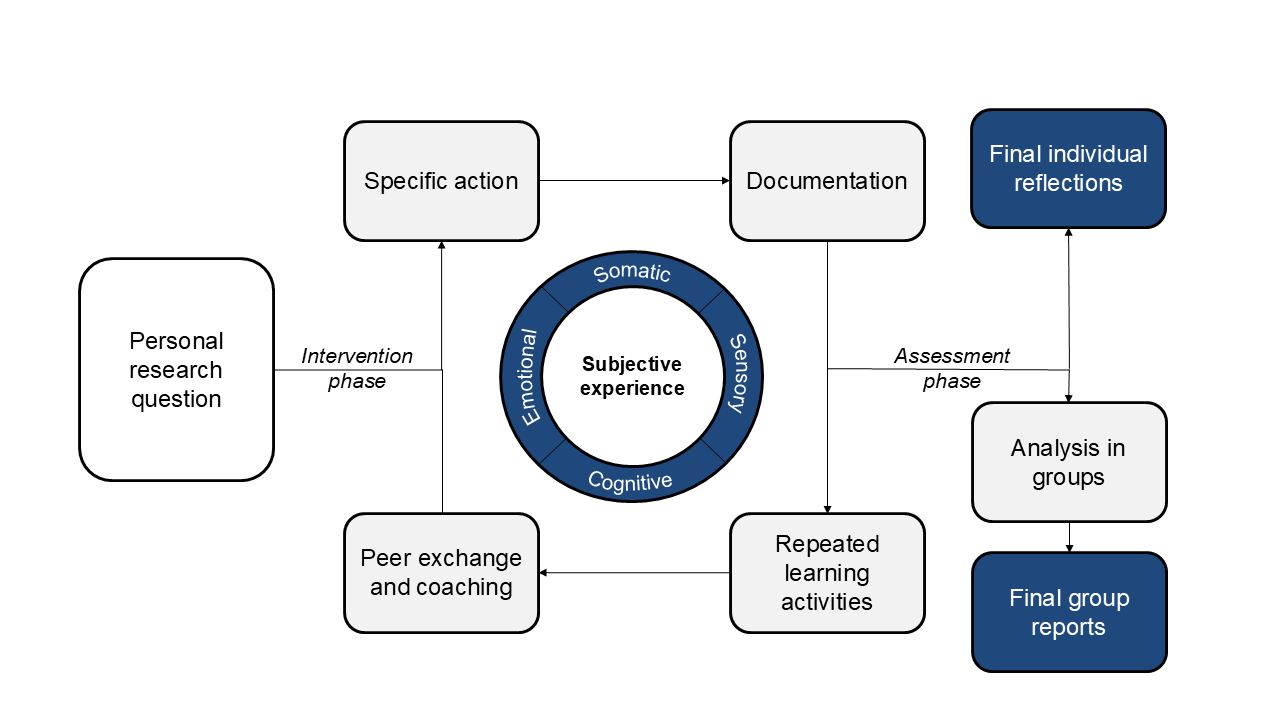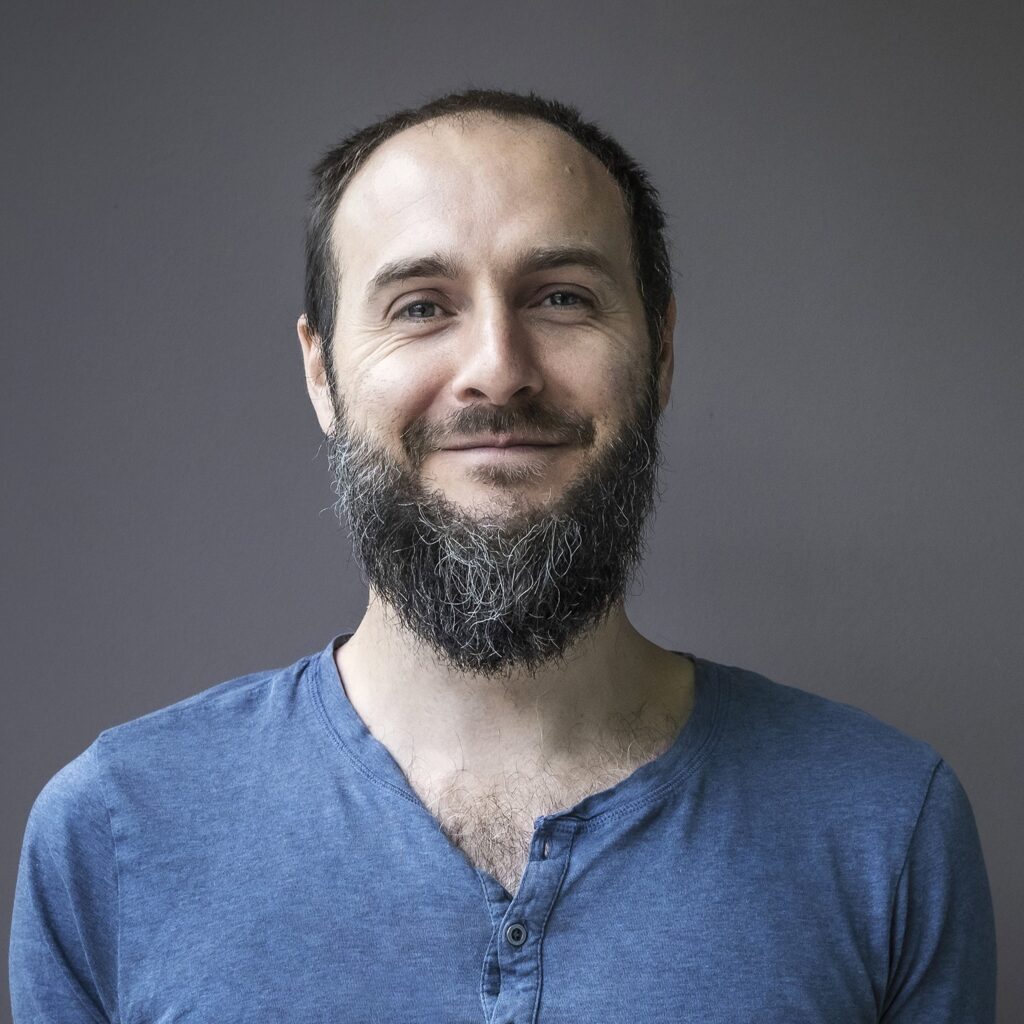Self-Inquiry-Based Learning
The rise of the Inner Development Goals in academia marks an important shift in how we define learning outcomes. Rather than focusing solely on content knowledge and intellectual performance, attention is moving toward intrapersonal capacities and skills. This shift challenges educators to rethink their teaching and engage more effectively with students’ inner lives. This shift challenges educators to rethink their teaching and engage more effectively with students’ inner lives.
The Transition Makers Toolbox offers a series of standalone learning activities that educators can use to address specific IDGs. But how can inner development be integrated at the course and curriculum level? Self-Inquiry-Based Learning (SIBL) offers a pedagogy to embed inner development at the course and curriculum levels — beyond isolated activities. Grounded in evidence-based learning principles, SIBL helps educators design and facilitate learning trajectories that enable students to take ownership of their inner development.
More precisely, it trains learners to work with first-person research methods, enabling them to systematically engage with and intentionally change their lived experience related to specific contexts and situations. As such, it functions as a flexible pedagogical container that can connect to diverse tools and IDGs, tailored to the goals and needs of educators and students.
“Self-Inquiry-Based Learning builds on key principles of effective learning — such as deliberate practice and self-directed learning — and integrates them into a structured pedagogy enabling learners to take ownership of their inner development. At its core, it uses research not as a form of abstract knowledge generation, but as a method of inner development itself, bridging the gap between personal growth and academic learning.”
– Pascal Frank, Wageningen University & Research
A Three-phase Process

In phase one, each student formulates a personal research question on something they want to change or understand more deeply. For example, “How can I better cope with my climate change anxiety?” or “How can I learn to have difficult conversations in my professional context?” This sparks intrinsic motivation and supports self-determined learning. With guidance from educators, each student develops a concrete change project and identifies specific actions that enable inquiry into their question.
In phase two, students begin practising these actions repeatedly over a set period. Additionally, they apply first-person research methods to systematically analyse and document their experiences in reflective diaries. Regular introspective training and targeted learning activities deepen their engagement with their subjective, inner experiences. This makes the individual learning process deliberate and focused, allowing students to adapt their specific goals and strategies based on a deepened understanding of their experience. Educators should also facilitate peer exchanges where students share experiences, learn from one another and broaden their perspectives.
In phase three, students produce outcomes that reflect and further deepen their learning process. Next to individual reports, this includes a systematic analysis of the students’ documented experiences in groups (for example, thematic analysis). Through this process, students gain insights into intersubjective patterns underlying their personal experiences and relate these patterns to broader existing knowledge.
Pascal Frank
Researcher at Wageningen University & Research
“As a researcher convinced of the importance of inner development, my mission is to design learning approaches that are evidence-informed, easy to apply and adaptable to the needs of both students and teachers. With SIBL, teachers gain a framework for teaching that draws on proven insights into how meaningful learning happens. At the same time, students steadily build their response-ability: the capacity to make conscious, self-directed choices in relation to both their inner life and the world around them.”
Combining Experiental and Inquiry-Based Learning
Through SIBL, students become the subject of their own inquiry. The method fosters an investigative attitude toward personal experiences and creates shared, intersubjective understanding through systematic, research-informed processes. By applying scientific methods to subjective experiences, students cultivate self-knowledge and develop intrapersonal competence. In this way, SIBL combines the strengths of Experiential Learning and Inquiry-Based Learning, offering a rigorous yet human-centred approach to education.
SIBL has been subject to several empirical studies, demonstrating its potential to contribute to learners’ inner development at the course level. Current research activities focus on applications of SIBL at the curriculum level, as well as professional training programmes based on SIBL.
Learning outcome
- The student demonstrates intrapersonal competence: the capacity to engage with one’s inner states and processes in a conscious and self-determined way
References
Frank, P., Grauer, C. & Fischer, D. (2025) (Re-)learning time use and perception for sustainable development in schools—Qualitative results from a self-inquiry-based learning intervention. Time & Society. https://doi.org/10.1177/0961463X251343830
Frank, P. & Stanszus, L. S. (2019) Transforming Consumer Behavior: Introducing Self-Inquiry-Based and Self-Experience-Based Learning for Building Personal Competencies for Sustainable Consumption. Sustainability 11(9), 2550. https://doi.org/10.3390/su11092550

